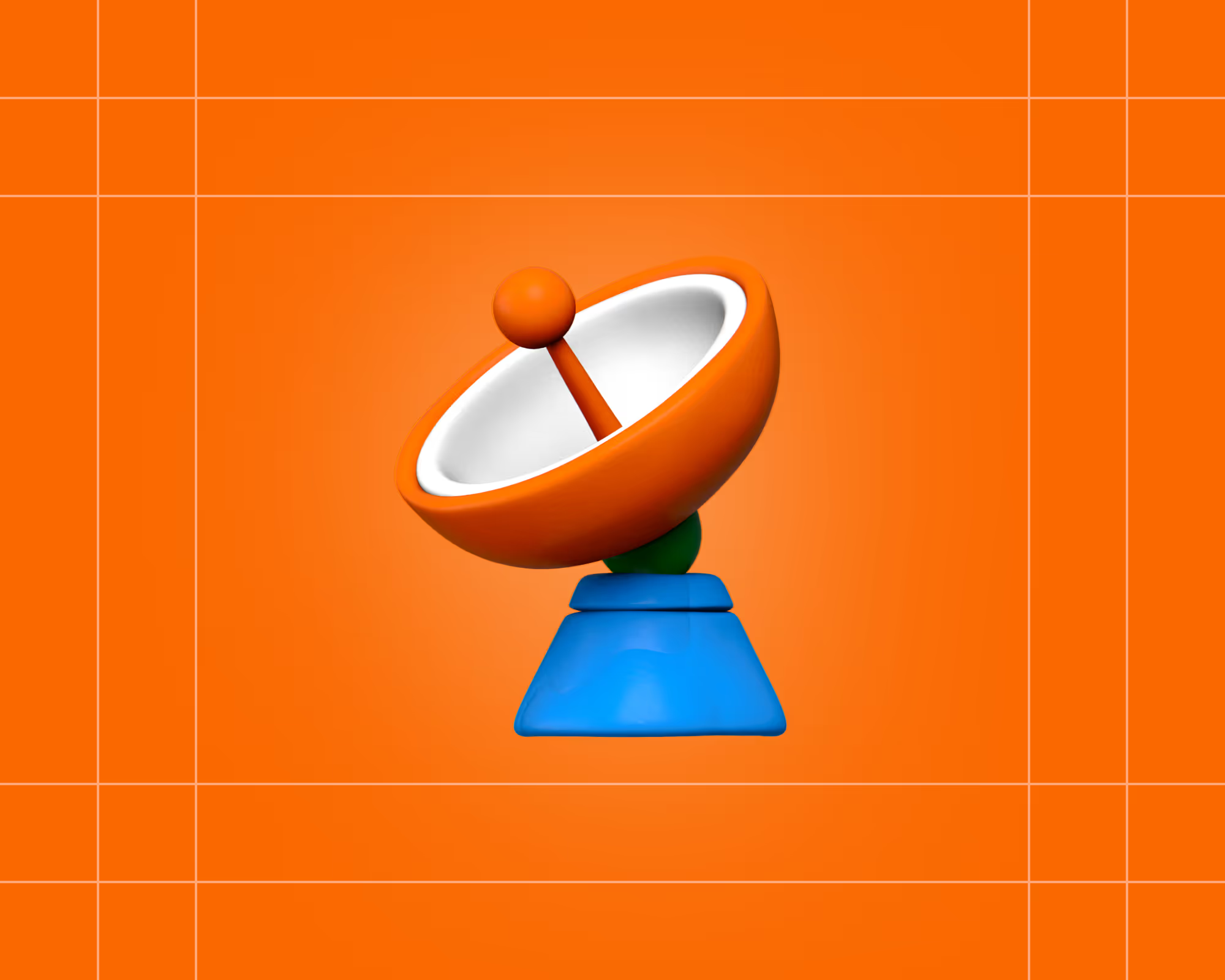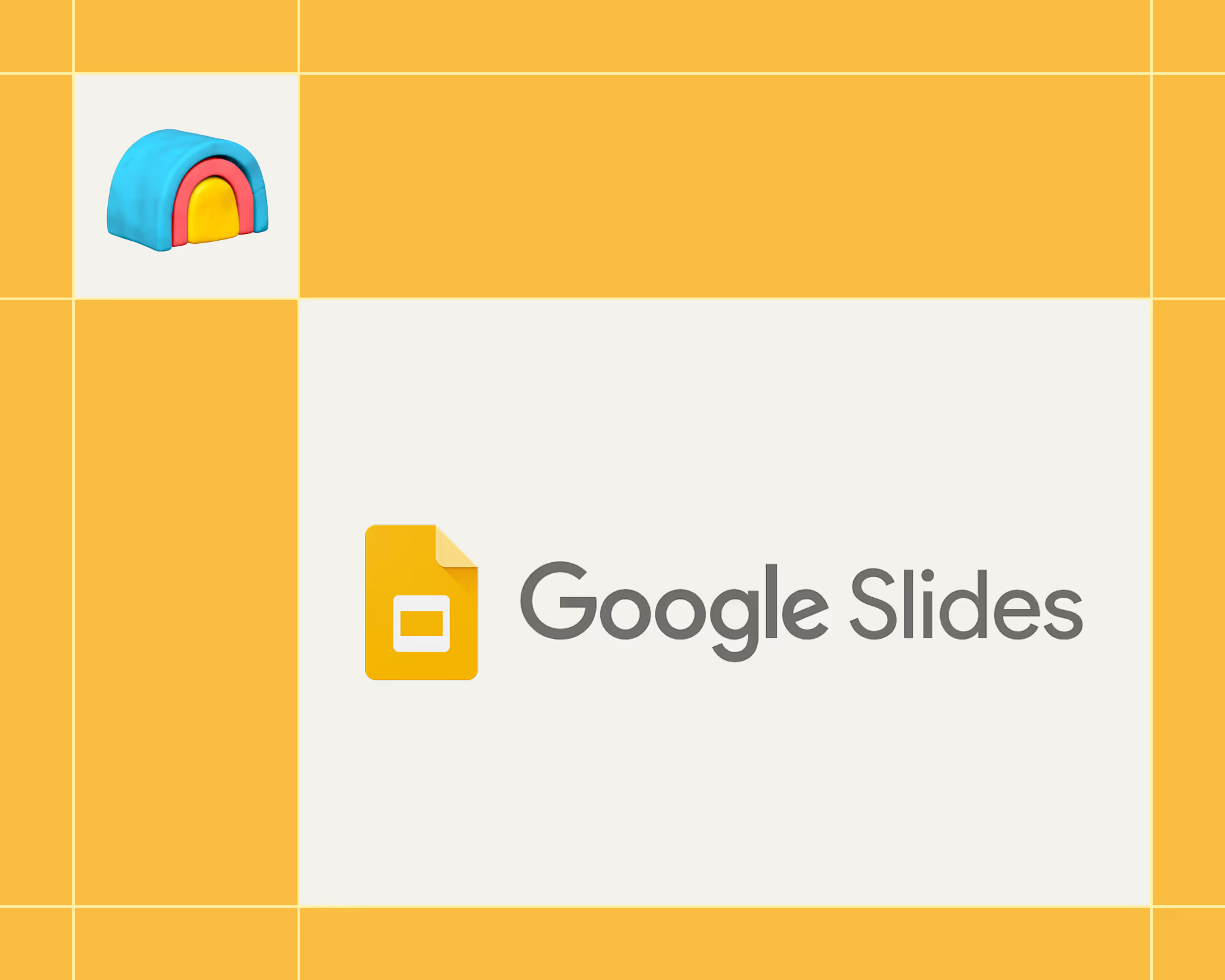Sculptor Analyst Mode: Turning Context-Rich Data Into Actionable GTM Insights
Gather business intelligence and share documents of this analysis directly from Sculptor
Our best content on growing your GTM motion, from outbound sales automation to AI lead generation.

See other articles and topics covered by the GTM with Clay.
Javeria Shah won the Clay Cup 2025 despite being denied a US visa and competing remotely from Pakistan. Learn how she transitioned from electronics engineering into GTM engineering and built her own business.

Clay has crossed $100M ARR, growing from $1M to $100M in two years after six years of foundational product work. The milestone reflects durable customer adoption, efficient growth, and an ecosystem of GTM builders using Clay to power their business.
.webp)
Say goodbye to messy account data and confusion over rep assignments. With HG Insights' corporate hierarchy mapping in Clay, clean up CRM data, uncover expansion opportunities, and improve sales multi-threading with structured parent/child data.

The Clay Partner Program is to a partner, what a toolbox is to an artist. It keeps essential resources within reach and grows more sophisticated as your expertise develops. We've designed everything around one simple principle: helping you grow your business as Clay grows.

Clay's new custom signals platform helps sales teams track unique data changes that indicate buying opportunities. Turn any data point into a sales signal, enrich with context, and automate personalized outreach to find GTM alpha your competitors miss.

Clay allows employees to sell vested shares for immediate liquidity through a $20M tender offer at a $1.5B valuation. With 10x revenue growth in 2022-2023 and serving 8,000+ customers including OpenAI and Hubspot, Clay continues to change how businesses approach go-to-market strategies with their AI agent Claygent.

Automate personalized sales decks with Clay’s Google Slides integration. Instantly generate tailored presentations for leads, customers, QBRs, and internal updates. Use one template to create hundreds of presentations at scale.

Clay integrates with HG Insights, the market’s leading company intelligence platform trusted by over 90% of the Fortune 100 Technology list. HG is the best way to find company technology stacks and parent-child relationships.

Explore the best B2B contact databases for mobile phone data. We tested and ranked providers like Forager, ContactOut, Nimbler, and Leadmagic for accuracy, value, and coverage to help you boost your outreach and connect with qualified leads.

Clay has raised a $46M Series B from Meritech Capital with participation from Sequoia, First Round, Box Group, Boldstart, and some of the world’s top sales and marketing leaders to power growth for tech’s biggest names like Anthropic, Intercom, Notion and 2500+ others. This is in addition to our previously unannounced $13.5M Series A, led by Sequoia, and $2.5M seed led by First Round.

Go-to-market professionals can use a systematic methodology to improve the resonance of cold outbound offers. By creating an offer validation system, you can figure out if your message will ever break through.

You know that effectively converting trial users into paying customers is critical for growth, but takes strategic outreach. Clay uses our own product to automate the process of tracking trial sign-ups and crafting personalized messaging for effective conversion!

You have tons of stalled opps in your CRM. Deals that didn't reach the finish line, meetings that didn't show, etc. The timing was off back then, but it could be better now. Clay can turn your raw CRM export into a fully personalized email campaign to get those dead deals back on the books.

Traditional data providers like ZoomInfo make you purchase an obscene annual contract to access their platform. You're left with tons of data you don't need, and not much data you do need... Instead, Clay gives you maximum data coverage for the cheapest price, without paying for data you don't need or signing annual contracts.

Your sales engine is broken, and we can fix it. In this piece, we'll teach you how to use outbound sales automation and SDR automation to grow your pipeline *without* increasing your team size. Learn how to use AI, web scraping, and a smart tech stack to remove all of your team's manual prospecting work—forever.

Are you prospecting to niche, local businesses, like salons, HVAC companies, or small businesses? In this guide, we'll show you how to scrape Google maps and use AI to find, enrich, and personalize emails to niche and local businesses!

AI sales assistants are transforming sales and marketing workflows already. In this blog, we share 11 ways AI sales assistants can already help you find, research, and reach out to leaders, faster and better than ever.

Clay completely transformed First Round Capital's CRM database. Check out the workflow First Round built in Clay to enrich and auto-update their CRM contacts, so much faster and cheaper than ever before.

Everything you need to know about B2B cold email copywriting, including frameworks, examples, and cold email templates to help your sales outreach flourish. Read annotated examples of bad vs. great cold emails, and learn about key principles that will make your prospects more likely to open them and convert!.

This is the most comprehensive guide on the Internet about how to use AI for your B2B lead generation efforts. With our AI lead generation workflows—including finding leads, enriching them, and sending personalized emails—you can skyrocket your cold outreach success.

Learn about how to use AI for sales prospecting in this comprehensive guide, including framework for creating AI prompts and examples of cold email templates using AI that real sales teams have used successfully to land clients. AI sales prospecting can save your team thousands of hours—and double or triple your positive response rates.

Once ServiceBell starting using Clay to find qualified leads, solving their biggest problem, they booked 10 meetings in one day. Check out how they did it, and replicate the workflow for yourself!

Clay's pricing gets a makeover! Discover our new, dynamic pricing tiers, from cost-effective entry-level plans to comprehensive solutions for advanced users. Learn how our revised pricing offers better value and flexibility, tailored to your business needs. Read more in our latest blog post.

Everyone knows that personalized emails perform better than generic ones, but writing a personalized email can be a lot of work. Fortunately, with the right AI writing tools, creating thousands of personalized emails in minutes is possible. In this article, we will show you 24 AI email personalization examples you can quickly implement to grow your sales pipeline rapidly.

Candid Wholesale's SDR team used to spend hours and hours every week just to find customers that fit their ICP. Once they started using Clay, the entire process was completely transformed: streamlined, simplified, and so much faster.

Nailing your outbound sales and prospecting process can help you generate leads, acquire customers, and drive revenue growth. In this guide, we’ll share a step-by-step approach to troubleshooting each stage of your outbound sales campaign—whether you’re a new sales professional or a seasoned team leader.

In this ultimate guide to B2B sales prospecting, we'll explore 15 powerful strategies to help you generate more quality leads, build a strong sales pipeline, and drive more conversions. Whether you're a sales professional or a marketing team looking to boost your new business efforts, this guide has everything you need to succeed in the world of B2B sales. Check it out now!

Revolutionize your sales process with Clay, the sales prospecting tool that enables you to import prospects from multiple sources, enrich data, and export it to your preferred platform. Start building your sales prospecting list in minutes, not hours.

Learn how to write effective AI prompts for sales prospecting. This guide shares 13 real prompt examples for common sales tasks like finding company missions, summarizing news, and more. See how proper prompting framework helps improve campaign relevance and response rates.

Streamline your cold emailing process with OpenAI and Clay. Write personalized emails quickly and easily using company bio, company information, and more. Discover how to save time and improve the effectiveness of your outreach in this informative post.

Unlock the secrets of effective B2B cold emailing with our expertly crafted templates. Learn from real-world examples and proven strategies to write cold emails that get responses and drive results. Perfect for sales and marketing professionals looking to enhance their outreach.

When building a Clay table, the sources, integrations, and CRM plugins can accomplish the goals of most users. Sometimes, there is a need for some data merging, splitting, or otherwise clean up that is needed in your table. This is where you can use Formulas to accomplish your goals!In this blog, we are going to first go over how to think about formulas using the AI formula generator and then we will go over common formulas that you can write yourself in your Clay table.

Boost your sales prospecting with sales email examples you can leverage in your campaigns. Learn how to write effective prospecting emails on autopilot.

This simple Clay hack is the fastest way to get a YouTube transcription

Learn how to leverage AI for sales and pipeline management to optimize your processes, identify high-potential accounts, and enhance conversions.

See the numerous applications of gen AI for presales and learn how the technology can help you make informed decisions and successfully close deals.

Explore what AI lead nurturing systems are, how they help build meaningful and authentic relationships, and what they can’t do for your sales initiatives.

Discover ChatGPT prompts for lead-scoring techniques to easily identify high-potential accounts based on criteria that align with your line of work and goals.

Learn more about AI selling, the potential challenges it comes with, and a tool that can help you find customers for your AI products and enhance conversions.

Learn about the different ways you can use ChatGPT for sales and business development. Discover actionable tips for implementing ChatGPT successfully.

Learn how an AI BDR can take over your outbound processes to make them more effective. Understand the limitations of replacing human BDRs with AI.

Discover if and how to use a ChatGPT email response in your sales campaigns to automate communication, save time, and enhance efficiency.

Discover how to use AI in outbound sales to find and understand leads, track their behavior at touchpoints, and reach out to them with personalized content.

Learn how AI lead qualification can lead to enhanced conversions. Discover its benefits and potential challenges you may face while implementing it.

Learn more about conversational AI lead scoring, how it works, and how to use it to identify high-potential accounts and improve conversion rates.

Discover how AI follow-up email software can help with writing, personalizing, and automation. Understand the limitations and find the best tool for the job.

Discover the best AI in sales examples to get new ideas on employing the technology in various sales-related processes and improve your campaigns’ performance.

Learn about AI lead follow-up and how to use it to optimize lead management, improve responsiveness, and enhance conversions.

Discover the best ChatGPT email prompts for SDRs and learn how to use them to improve your outreach, win over leads, and save time.

Learn how an AI email finder enhances your prospecting efforts and helps set up successful campaigns. Discover tips for getting the most out of your tool.

Learn how to take advantage of ChatGPT for sales purposes to automate different processes, save time, enhance productivity, and boost revenue.
.avif)
Find out how to use AI for sales and why AI is becoming an indispensable tool for prospecting, managing leads, and increasing sales revenue.
.avif)
Learn what AI sales enablement is and how it can help you improve efficiency, automate work, and offer outstanding support to your sales team.
.avif)
Learn how using AI for cold calling improves your outreach performance. Discover actionable tips for leveraging AI in cold calls and tools worth checking out.
.avif)
Learn how AI sales training is used to hone SDRs’ skills and prepare them for even the toughest prospects. See tips for leveraging this technology effectively.
.avif)
Learn about the use cases, benefits, and pitfalls of using AI in marketing and sales. Discover effective tips for tightening your sales cycle with AI platforms.
.avif)
Discover how to use AI to write emails that resonate with your leads and help you enhance conversions. Learn about a tool that makes email writing a breeze.
.avif)
Learn more about AI in B2B sales and how the technology can help sales teams work smarter. Discover an AI-powered sales tool to reinvent your processes.
.avif)
Learn how AI-guided selling can tighten your sales workflow and increase the effectiveness of your campaigns. Discover tips for implementing it efficiently.
.avif)
Learn how to use ChatGPT to write an email that starts a solid relationship with a prospect. Discover the pros and cons of relying on ChatGPT for sales emails.
.avif)
Learn how ChatGPT lead generation works and why you should use it in your sales process. Discover actionable tips for getting the most out of ChatGPT.
.avif)
Learn how ChatGPT supports your sales cycle and how to get the most out of it. Discover effective ChatGPT prompts for sales that can uplevel your campaigns.
.avif)
Discover the best ChatGPT prompts for sales emails to save time, automate outreach, and impress potential and existing customers with unique messaging.
.avif)
Learn how AI lead scoring works and why you should implement it. Discover the best way to leverage AI in lead scoring and other sales processes.
.avif)
Dive into data enhancement vs. data enrichment comparison and find out how they differ, what makes them similar, and which will better suit your needs.

Find out how data enrichment and analysis management can turn basic data into rich insights that guide your every decision. Learn about a helpful tool for it.

Revolutionize the retail industry with data enrichment and discover how this process can influence your ROI and improve customer satisfaction.

Discover the best tools for CRM enrichment with a free trial, and test out how they can upgrade your CRM contacts without spending a single dime.

Learn about product data enrichment and its role in boosting your SEO and increasing conversions. Discover the best tool for e-commerce product data enrichment.

Learn what CRM data enrichment is and how it benefits your outreach strategy. Discover the most effective enrichment tools that help you uncover robust data.

Learn what first-party data enrichment is and why you should use it in your sales campaigns. Discover a tool that can enrich your first-party data in seconds.

Find out what data enrichment is, why you need it, and how to enrich your database. Discover what the best data enrichment tool is and how it can help.

Discover why data enrichment for enterprise business should be an integral part of your data strategy, and how you can implement it into your organization.

Discover the most notable benefits of data enrichment. Learn how your business can enjoy them by implementing the right data enrichment solution.
.avif)
Learn how to apply lead enrichment in Salesforce to increase your sales and discover the best tool to make the most out of your CRM.
.avif)
Learn about the data cleansing and enrichment processes, as well as the key differences between the two. See how to enrich and cleanse your data effectively.
.avif)
Discover the cutting-edge technologies powering data enrichment—machine learning, NLP, and more. Learn how to leverage these solutions in your workflow.
.avif)
Learn about the various data enrichment use cases across different business functions. See how to streamline the process with the right tools.
.avif)
Learn why you should enrich with AI to create a streamlined data collection process. See how AI enrichment tools work and discover an option worth checking out.
.avif)
Learn about the main factors to consider while choosing a BeenVerified free alternative. Discover four options that deal with BeenVerified’s drawbacks.

Learn how to identify websites that allow web scraping and find the most popular options. Discover how to extract data ethically and efficiently.

See our selection of top Facebook group scraper tools and their notable strengths and weaknesses. Learn how to use them to extract data effectively.

Discover the three main methods of scraping YouTube comments and learn what makes a YouTube comment scraper the most result-driven way.

Explore the top five Facebook scraper tools and discover their features, prices, pros, and cons. Learn how to choose the best option and use it effectively.

Learn methods to scrape emails from Facebook effectively and follow easy instructions for email extraction using the top tool recommendation.

Discover three basic methods to scrape Instagram followers, learn which gives the most accurate and fast results, and follow instructions for easy scraping.

Learn which data you can obtain through a TikTok scraper and how to use one. Discover the most popular scrapers and tips for building a custom scraper.

Discover the five best Twitter scraper tools, explore their features, prices, and user reviews, and learn how to use them effectively.

Discover the best no-code web scraper tools to extract data effortlessly and save time. Learn their features, prices, and other relevant details.

Become a pro in web scraping on Mac with tools that make data extraction a breeze. Learn about their features and prices and find the one that suits your needs.

Discover the most efficient YouTube scraper options to collect data from the platform for market research, user sentiment analysis, or other purposes.

Discover the top five Instagram email scraper tools for seamless data extraction and learn their strengths, weaknesses, and prices.

Discover seven data scraping software and explore their strengths, weaknesses, and pricing. Learn how to choose the one perfect for your needs.

Explore top-rated price scraping tools to analyze competition, explore the market, and make informed decisions that ensure your company’s stability.

Read this Instant Data Scraper review and learn to collect data from websites. Discover a superior alternative and streamline your outbound initiatives.

Learn how to find a web data scraper for your needs and budget. Discover seven platforms alongside their benefits, drawbacks, and pricing.

Discover the best practices for automated web scraping. Learn why using a dedicated scraping tool is the best way to gather the data you need without hassle.

Learn how to find the best tool to scrape websites without hassle. See our top picks alongside their features, pricing, and other relevant details.

Learn more about why a cloud web scraper may be a good choice for data extraction. Discover the best cloud web scraping solutions and get the data you need.

Is Web Scraping Legal? Find the answer in our guide and learn how to scrape data responsibly and automate your data collection processes.

Explore the best web scraping tools among open-source options and learn how to leverage them to extract desired data. Discover a more effective alternative.

Explore top-rated AI web scraping tools and leverage their power to extract data from websites and platforms with minimal involvement.

Learn more about scraping data from websites for various purposes. Discover the benefits and challenges of web scraping and explore the best methods.

Learn more about data scraping and its most popular use cases. Explore different techniques for extracting info from websites and find the best solution.

Learn about the benefits and limitations of ChatGPT web scraping and discover a superior and more efficient way to extract data from websites.

Learn how to scrape data from a website to Excel and leverage the program’s analytics options to draw valuable insights and make informed decisions.

Discover the best web scraper tools and their features for extracting data from websites to generate leads, research the market, or zoom in on the competition.

Learn about LinkedIn API Python libraries and the platform’s official APIs. Discover a more hands-off way of leveraging LinkedIn in your outreach campaigns.

See a summary of Salesloft reviews by existing customers, as well as our own assessment of the platform. Discover another solution worth considering.

Read our Salesloft vs. Salesforce breakdown to learn about both platforms’ features, use cases, and pricing. Discover a tool that bridges the gap between them.

Wondering how to reach out to someone on LinkedIn? Learn the best practices for contacting prospects on the world’s largest networking site using our guide.

Discover several easy ways to find an email from LinkedIn without hassle. Learn how dedicated email-finding platforms streamline the process.

Learn everything about LinkedIn search by email to gather valuable data about your leads and leverage info to personalize your campaigns.

Learn how to cold message on LinkedIn successfully and enjoy high engagement. Discover strategies for personalizing messages and avoiding common mistakes.

Learn how LinkedIn automation works and why it’s important for successful outbound campaigns. Discover the best tools for creating a smooth workflow.

Learn about the different ways to export LinkedIn contacts without hassle. See what to do with your contacts and how to turn them into hot leads.

Learn what to look for in a Mailshake alternative and discover four popular solutions worth checking out (alongside their features, pricing, and other info).

Looking for a Yesware alternative to streamline your email outreach initiatives? Explore our top three picks that will help you enhance your campaigns’ success.

See a round-up of BeenVerified reviews to learn about the platform’s reliability and performance. Discover a superior way to find contact information.

Read our BeenVerified vs. TruthFinder comparison to make an informed decision between the two. Discover a superior alternative to both platforms.

See our detailed Crunchbase vs. PitchBook comparison to find out which of the two financial intelligence platforms is the better fit for your needs.

Learn everything about GMass pricing models to decide whether it’s a good fit and discover a potentially better alternative for your email campaigns.

Discover four Woodpecker tools alternatives to streamline your outbound marketing initiatives, boost your campaigns’ efficiency, and close more deals.

Is BeenVerified worth your money? Learn more about all BeenVerified pricing plans, use cases, features, and a potentially superior alternative.

Outreach vs. SalesLoft: which sales engagement platform is right for you? Get insights, features, and alternatives in this comprehensive comparison.

Discover the top 10 alternatives to Freshworks CRM for CRM tools and data enrichment.

Discover the top 10 alternatives to Insightly for CRM tools and data enrichment.

Discover the top 10 alternatives to Copper] for CRM tools and data enrichment.

Discover the top 10 alternatives to Agile CRM for CRM tools and data enrichment.

Discover the top 10 alternatives to Pipedrive for CRM tools and data enrichment.

Discover the top 10 alternatives to Salesforce for CRM tools and data enrichment.

Discover the top 10 alternatives to Nimble CRM for CRM tools and data enrichment.
